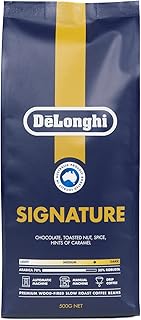Climate change is reshaping the world of coffee, leading to a future where the familiar taste may be a thing of the past. Scientists and a growing number of coffee farmers globally are warning of bold and unpredictable flavors as the industry adapts to the impacts of climate change.
The coffee industry has been facing a turbulent period, with record-breaking prices and failed crops attributed to changing climates. Arabica and robusta, the two main species of coffee beans, have dominated production for years, but the recent challenges have prompted a search for more resilient options.
In the past year, the coffee market has experienced significant price fluctuations, driven by weather-related issues in major producing countries like Brazil and Vietnam. Droughts and heatwaves have disrupted supply chains, pushing prices to unprecedented levels and affecting global inventories.
As the industry grapples with these challenges, farmers and scientists are exploring new species and hybrids that can withstand the changing climate. Crossbreeding arabica and robusta varieties has led to the development of plants that combine desirable traits such as disease resistance and flavor profiles.
One such hybrid, the Timor Hybrid, has gained popularity for its unique taste profile, ranging from groovy to floral notes with good acidity. Additionally, alternative species like excelsa and liberica are gaining attention for their climate resilience and distinct flavors.
Excelsa, known for its tolerance to higher temperatures and drought conditions, offers a flavor profile described as multidimensional with hints of fruitiness and nuttiness. Liberica, on the other hand, is prized for its bold taste, low acidity, and smoky, woody notes that set it apart from traditional coffee varieties.
While these alternative species are still niche products in the coffee market, some farmers are already transitioning to excelsa and liberica to adapt to the changing climate. However, the high cost of these beans and limited commercial viability pose challenges for widespread adoption.
Industry experts believe that as climate change continues to impact traditional coffee species, the demand for alternative varieties will likely increase. While arabica and robusta remain popular choices for now, the evolving market dynamics and environmental pressures may pave the way for excelsa and liberica to play a more significant role in the future.
For coffee enthusiasts and industry players alike, the changing landscape of coffee production presents both challenges and opportunities. Embracing new flavors and varieties could be key to ensuring the sustainability of coffee cultivation for future generations.
📰 Related Articles
- Beanless Coffee Innovations Reshaping Industry Amid Climate Crisis
- e.l.f. Beauty’s $1 Billion Acquisition Reshapes Beauty Industry
- WMF Revolutionizes Coffee Industry with Innovative Vegan Milk Solutions
- Vietnam’s Coffee Industry Seizes Growth Amid Global Price Surge
- Understanding Coffee Price Surge: Navigating Industry Challenges






